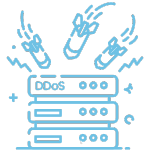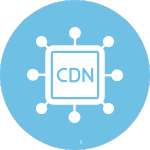In an increasingly digital world, email remains a vital communication tool for businesses of all sizes, particularly small businesses. However, the rise in cyber threats has made email security a top priority. Small businesses often lack the resources and expertise to implement comprehensive security measures, making them attractive targets for cybercriminals. Corporate email solutions offer essential security features designed to protect sensitive information and ensure compliance with regulations. This essay explores the typical security features included in corporate email solutions for small businesses and their significance in safeguarding communications.
Key Security Features in Corporate Email Solutions
- Encryption: One of the most critical security features is email encryption, which ensures that messages are converted into ciphertext, making them unreadable to unauthorized users. This protects sensitive information during transmission and storage. End-to-end encryption ensures that only the sender and intended recipient can access the content of the emails, safeguarding against interception.
- Spam and Phishing Filters: Advanced spam filters are essential for identifying and blocking malicious emails before they reach employees’ inboxes. These filters analyze incoming messages for suspicious characteristics, such as mismatched URLs or known phishing tactics. Phishing attacks are among the most common threats facing small businesses; effective filtering helps prevent data breaches and financial losses.
- Two-Factor Authentication (2FA): Two-factor authentication adds an extra layer of security by requiring users to verify their identity through a second method, such as a text message or authentication app, in addition to their password. This significantly reduces the risk of unauthorized access, even if login credentials are compromised.
- Data Loss Prevention (DLP): DLP features help protect sensitive data from being accidentally or intentionally shared outside the organization. These tools monitor outgoing emails for sensitive information such as credit card numbers or personal identification details and can block or alert users when such data is detected.
- Secure Email Gateways: Secure email gateways provide an additional layer of protection by filtering incoming and outgoing emails for threats like malware and ransomware. These gateways analyze email traffic in real-time to detect potential risks before they reach users.
- Email Archiving: Archiving solutions ensure that all email communications are stored securely and can be retrieved easily when needed. This feature is crucial for compliance with regulations that require businesses to retain certain communications for specified periods.
- Email Recall Functionality: Some corporate email solutions offer the ability to recall sent emails, allowing users to retract messages that may have been sent in error or contain sensitive information. This feature helps mitigate potential mistakes before they escalate into larger issues.
- User Training and Awareness Programs: Many corporate email solutions include training resources to educate employees about best practices for email security. By fostering a culture of awareness around phishing attempts and safe email practices, businesses can significantly reduce human error, which is often a leading cause of security breaches.
- Audit Trails: Audit trails provide a record of all email activities, including sent and received messages, logins, and changes made to accounts. This feature is essential for monitoring compliance with internal policies and external regulations, as well as investigating any suspicious activities.
- Integration with Other Security Tools: Corporate email solutions often integrate seamlessly with other cybersecurity tools such as firewalls, antivirus software, and intrusion detection systems. This holistic approach ensures that all aspects of a business’s IT infrastructure work together to provide comprehensive protection against threats.
Conclusion
In conclusion, corporate email solutions play a crucial role in enhancing the security of small businesses’ communications by offering a range of essential features designed to protect sensitive information from cyber threats. Key features such as encryption, spam and phishing filters, two-factor authentication, data loss prevention, secure email gateways, archiving capabilities, recall functionality, user training programs, audit trails, and integration with other security tools collectively strengthen an organization’s defense against potential risks. As small businesses increasingly rely on email for daily operations, investing in robust corporate email solutions is vital for safeguarding communications, maintaining customer trust, and ensuring compliance with regulatory requirements in today’s digital landscape.









